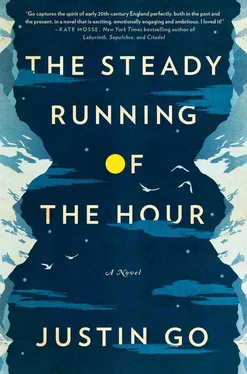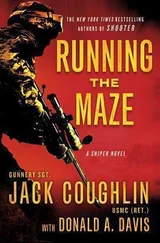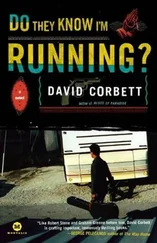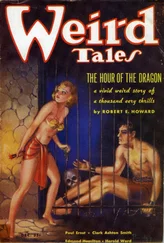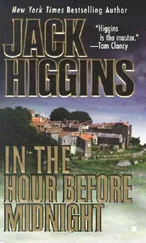Ashley supposes he must not move his neck, so he holds his shoulders even while reaching out to the nightstand beside him. On the surface lie the pair of letters he keeps in his tunic breast pocket. Beside these is a brown field-service postcard and the stump of a red pencil. Gingerly and with great labor Ashley picks up the card and pencil. He crosses out sentences so that the desired message remains.
I am quite well.
I have been admitted into hospital.
sick
and am going on well.
wounded
and hope to be discharged soon.
I am being sent down to the base.
letter dated ___________
I have received your
telegram ___________
parcel ___________
Letter follows at first opportunity.
I have received no letter from you
lately .
for a long time.
Signature only.
Date
Ashley deliberates about the date for a moment before filling in the blank. The red-haired VAD sees him writing and comes to his bedside. She takes the postcard.
— To the return address on those letters?
She points to the pair of letters on the nightstand. Ashley picks up the pad of paper and writes slowly.
SAME ADDRESS. MORPHIA PLEASE.
The VAD shakes her head.
— I’ll have to ask the doctor.

Three days later on November 13, the maid enters the front parlor of the Soames-Andersson house on Cavendish Square carrying the brown postcard. But the parlor is empty. The maid turns and is halfway up the stairs when Eleanor comes through the front door, in her arms a packet full of magazines she has brought for Imogen.
— Hello Lizzie. I just passed the postman. Is that the second post?
The maid holds the card uncertainly. Eleanor starts up the stairs toward her.
— What is it? You know well enough you oughtn’t to be reading Papa’s mail. Even if it is only a postcard—
Eleanor seizes the card and waves it in the air.
— If you keep it up, Eleanor teases, I shall have to read yours.
Then Eleanor recognizes the seal and the inscription FIELD SERVICE POSTCARD. She reads the card and walks upstairs to a window in the guest bedroom, watching the postman cross the street and go around the wrought-iron fence. Eleanor thinks for a moment, tapping her finger on the card. The bedroom had once been hers and they had altered nothing except the damask curtains. But somehow it seemed different.
Eleanor walks down the hallway past Imogen’s room, a slit of light coming under the closed door, her sister probably in bed. Eleanor enters her mother’s bedroom, closing the door behind her. Her mother is at her desk writing a letter. Eleanor sets the postcard in front of her.
— My God. Has Imogen seen this?
— No. It just arrived.
— Then let us go tell her.
Eleanor shakes her head, kneeling beside her mother.
— But look at the address. I know the look of his writing, I’ve seen it often enough. That’s someone else’s writing. He may have sent it before he died—
— But it’s dated afterwards.
Eleanor takes her mother’s hand.
— I hope it’s true, Eleanor says. I do so hope it is. But imagine the effect on her if we say he is alive now and it turns out he isn’t. It would all begin anew, only worse. She could hardly be more delicate than she is now. The slightest breeze could topple her.
— But to keep it from her—
— Only until we’re certain.
She sighs, giving the card back to Eleanor.
— Shall you call his people then, or write to someone with the army?
— I shall do both.

On the evening of November 17 the Soames-Andersson daughters sit in the parlor awaiting dinner. The last rays of daylight project among the lace curtains, illuminating an overgrown fern potted in the window. Eleanor reclines on a purple divan reading back issues of The Burlington Magazine . Imogen is playing the piano. There is sheet music spread before her but she plays from memory, the piece slow and pensive, the notes tumbling forth at uneven cadences.
Eleanor glances up from the magazine, raising her voice above the music.
— Really. You’re going to send us all over the edge.
Imogen does not answer. She continues playing as her sister pages through the magazine, Imogen’s eyes on a stuffed pheasant diving from its wooden setting on the wall. Eleanor flings the magazine down and comes to the piano bench, putting a hand on her sister’s shoulder. Imogen stops playing, her fingers still poised on the ivory keys.
— The doctor, Imogen whispers, agreed that I ought to play.
— Not this sort of thing. It’s melancholy.
— I don’t find it melancholy.
— Naturally you don’t. But you must make certain efforts right now.
Imogen plays on. Eleanor throws her hands up in the air.
— Imogen, if you don’t want me here, I’m happy enough to go home. I want to help, but I can’t see how listening to two hours of funeral marches—
There is a soft rapping on the door. The sisters turn to see the maid on the threshold. She has been polishing windows and is wearing her chamois work gloves. An envelope is in her hand.
— A telegram—
Eleanor plucks it from the maid’s hand.
— For Miss Imogen, the maid continues.
Eleanor clutches the envelope uncertainly, but Imogen snatches it from her and tears it open, stepping away from her sister as she reads. Imogen looks at Eleanor and back at the telegram. Then she dashes up the stairs to her bedroom, Eleanor in pursuit, calling after her. Imogen locks the door behind her. She sinks into the chair beside the door without removing her eyes from the telegram. Eleanor is knocking on the door and calling Imogen’s name. Imogen reads the message again.
17 NO 16
IMOGEN SOAMES ANDERSSON
18 CAVENDISH SQ LONDON W
WOUNDED BUT RECOVERING NUMBER 17 HOSPITAL ALBERT
IGNORE ALL INDICATIONS CONTRARY LETTER FOLLOWS
INDESTRUCTIBLY YOURS ASHLEY

Mireille and I have never touched. Not in Paris, not in three days together in a remote house in the countryside; not a hug, not even a handshake. She smiles at me in the morning and never fails to say bonne nuit before we go to bed. She treats me with care and consideration, but often this seems formal, as if I’m a guest to her rather than a friend.
Mireille is never bored. When things turn slow, she picks up the pen and draws, or puts on her coat and goes for a walk without a moment’s notice. When she leaves in the afternoon I stay at the dining table, studying a map I bought in Amiens and marking the locations mentioned in Ashley’s letters: the hospital in Albert, the convalescent ward at Étaples. I take out my notebook.
Sept 6
Picardie
This is where it all went to pieces. But I can’t figure out why.
Ashley was wounded Nov 5, 1916. Imogen must have come to the front sometime between then and Nov 24. After that, Ashley’s letters are different — she has stopped replying.
What brought Imogen to Picardie in the middle of a war? Where did they meet? What caused the final break?
I look back at the map, staring at the web of roads and villages and hoping for some kind of revelation. Across the table are Mireille’s pencils and spiral-bound sketchbook. I walk over and look down at the green cover. Then I flip it back.
Читать дальше
